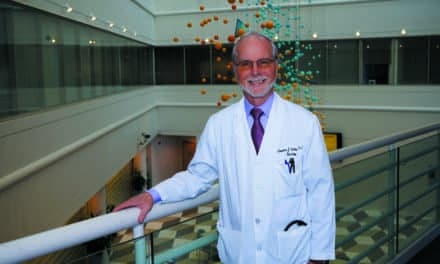 |
 |
Sleep Market Projected to Grow
A Frost & Sullivan analysis of the sleep apnea diagnostic and therapeutic markets forecasts significant growth in both niches. According to Frost & Sullivan, revenue in the sleep therapeutic market is expected to pass the $1 billion mark by 2007 and the $2 billion mark by 2012. (In 2005, market revenue was about $800 million.) The analysis also predicts that the sleep diagnostic market will grow from its 2005 rate of about $80 million to $120 million by 2012.
In addition, the report broke down the therapeutic and diagnostic market segmentation. For therapeutic devices, flow generators make up 57% of the market while facial interfaces make up 43%. In the flow-generators category, CPAP had a 70% share, bilevel devices had a 20% share, and auto-adjust positive airway pressure devices had a 10% share.
The analysis also found that in the diagnostic market clinical polysomnography (PSG) devices made up 81% of the market, ambulatory devices made up 10%, and screening devices made up 9%.
Frost & Sullivan predicted that, as awareness of sleep apnea increases, more testing and therapy opportunities will arise.
Insomnia, RLS Drug Research Progresses
A number of pharmaceutical companies are actively researching treatments for restless legs syndrome (RLS) and insomnia and have released the progress of their studies. The following are results from some of the latest clinical drug trials:
Insomnia
EVT 201
Results of the proof-of-principle study for the Evotec AG (Hamburg, Germany, and Oxford, UK) GABAa modulator, EVT 201, for the treatment of insomnia, showed that the drug significantly reduced wake after sleep onset (WASO) while significantly increasing the total sleep time and quality of sleep with no subjective residual effects. The Phase I/II study, which was conducted in an established clinical model of insomnia in healthy adults, has been completed with positive results. As with previous clinical studies, the compound was well tolerated without significant adverse events.
ROZEREM
Data presented at the SLEEP 2006 meeting in Salt Lake City have shown that ROZEREM™ (ramelteon) reduced time to fall asleep with no evidence of next-day residual effects, including psychomotor and memory effects, in a first-night-effect model of transient insomnia. The results of this double-blind, randomized study were presented as a poster. “Some medications taken for sleep are associated with lingering effects the next day, which could make performing activities requiring mental sharpness difficult or dangerous,” said Gary Zammit, PhD, director of the Sleep Disorders Institute at St. Luke’s-Roosevelt Hospital in New York. “These data suggest that ROZEREM can promote sleep in patients with transient insomnia without evidence of next-day psychomotor or memory effects.” ROZEREM is a trademark of Takeda Pharmaceutical Company Limited.
RLS
Pramipexole
Clinical data from studies involving pramipexole presented at SLEEP 2006 demonstrated that treatment with pramipexole significantly improved a range of RLS symptoms. Study results included improved sleep quality, rapid and sustained RLS symptom relief, and enhanced quality of life. “These studies support the efficacy and safety of pramipexole as a potential RLS treatment,” said the lead investigator of one of the studies, John W. Winkelman, MD, PhD, medical director, Sleep Health Center, Brigham and Women’s Hospital, Boston.
Pramipexole, a compound from Boehringer Ingelheim research, has US approval for the treatment of the signs and symptoms of idiopathic Parkinson’s. An application has been submitted to the Food and Drug Administration for pramipexole for the treatment of moderate to severe primary RLS.
XP13512
At SLEEP 2006, Clete A. Kushida, MD, PhD, presented data from the XenoPort Inc Phase 2a clinical trial of XP13512 demonstrating that XP13512 was effective in reducing symptoms and sleep disturbances in RLS patients. The trial showed that, compared to placebo, treatment with XP13512 significantly improved the international restless legs scale (IRLS) score at the end of 2 weeks (change from baseline = -12.1 vs. -1.9), investigator clinical global impression (CGI), the number of awakenings per night due to RLS symptoms, and the number of hours awake per night due to RLS symptoms (all p <0.0001). XenoPort is based in Santa Clara, Calif.



